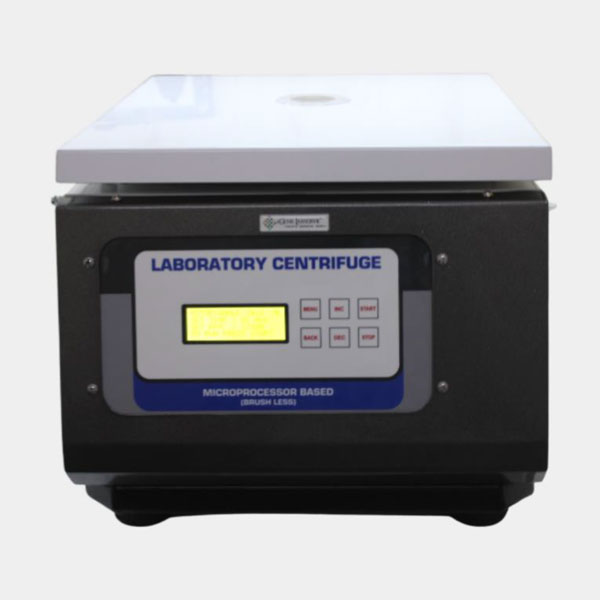A vacuum concentrator is an essential instrument used in laboratories for research work related to biochemistry, molecular biology, chemistry, and biochemistry. As a special tool used in laboratories, they use centrifugal force or spinning motion for concentration of multiple samples under low pressure or vacuum. With this device, one can easily remove volatile substances from multiple samples. Once the samples become concentrated, they are used for analysis.
The device is often referred to as centrifugal vacuum concentrator and a vital instrument that is used in mass spectrometry, chromatography, and spectroscopy. How does this device help? It is used for making measurements more precise, makes sample preparation more reliable, and boosts the speed of laboratory work in biochemistry, pharmaceutical, and chemistry research.
What are the key factors you need to understand when selecting and purchasing a centrifugal vacuum concentrator? If you are a first-time buyer, you may find it more difficult to make an informed decision. Here are the things you need to figure out:
What are your sample requirements?
When choosing the instrument, you must not skip things like the type and volume of samples. Now, samples tend to vary in pharmaceutical and chemistry labs. So, figure out the types of samples that you generally work with before eyeing the device. Remember different models of concentrators handle different sample types and sizes. So, here is what you need to understand precisely during the selection process:
- Types of samples
Some concentrators are a perfect fit for biological samples while others are more suitable for chemical procedures. You need to gauge the sensitivity and material of the sample when pin-pointing an option.
- Volume of samples
There are small and big-sized concentrators available. So, when you find the decision overwhelming, figure out the volume of samples you work with. While smaller models are more suitable for micro samples, the larger devices support extensive processing.
- Speed of solvent evaporation
The efficiency of the centrifugal vacuum concentrator for evaporation of solvents from samples may vary according to temperature control, vacuum, and rotor design.

Check the temperature control features
Maintaining the right temperature is essential for trouble-free operation of the centrifugal vacuum concentrator. When too much heat builds up within the unit, the sensitive compounds may degrade. On the other hand, low heat may delay the evaporation process. So, here is what you need to check when assessing the temperature control feature of the device.
- Temperature distribution
Does the concentrator offer uniform distribution of temperature? How does an even distribution of temperature help? It prevents localized overheating that often results in the damage of sensitive compounds. Moreover, excess heating may also impact the consistency of results.
- Cooling features
Most laboratory devices have cooling features and the concentrator is no exception. A few models of the centrifugal vacuum concentrator have integrated condensers for additional cooling. That way, they also prevent solvent vapours to escape and dampen the environment. The right kind of cooling feature helps extend the longevity of the concentrator and reduces strain on the components.
- Range of temperature
Temperature control in concentrator helps in the evaporation process; it is important for various and sensitive chemical or biological samples. Now, you need to check whether the instrument offers a suitable temperature range for your kind of applications. Usually, it stays between 30 and 60 degrees Celsius but a few models may offer a broader range.
Features and specifications
A centrifugal vacuum concentrator has a variety of features that helps improve the efficiency of sample concentration. Here are the ones you need to note I the device:
- Capacity of the rotor
The capacity of the rotor here is determined by the number of vials and sample tubes that need to undergo processing. Based on the throughput requirements, you may need an instrument with a high-end rotor that processes the samples at once or smaller rotor needed for low-volume samples.
- Level of vacuum
The level of vacuum reveals how good the concentrator model is for removal of solvents from samples. When the vacuum is robust, evaporation takes very little time and the risks of sample degradation are minimal. However, a good decision would be to buy a device with adjustable vacuum levels so that you can modify the vacuum level based on the applications.
The centrifugal vacuum concentrator may vary based on the size. So, when getting a new device, you need assess whether adequate storage space is available in the laboratory. With this, you can ensure that the concentrator is a great fit for your laboratory settings and does not obstruct workflow. Moreover, you need to also check that the concentrator includes storage space for consumables and accessories. Choosing the right model of concentrator enhances the efficiency of your laboratory. So check carefully the model at IGene Labserve, one of the leading manufacturers of lab instruments in India. Explore the model and its features here https://www.igenels.com/ ad order today.

